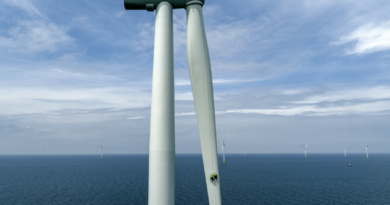The green energy spurt
Lithuanian energy sector will change substantially over the next three decades. When oil products, coal and gas will be phased out, only solar, wind and other ecological energy will be used in the country. Lower energy costs will favor on reducing business expenses. This is the reality of the future in the National Climate Change Management Agenda.
Fossil fuels will be abandoned in few decades
According to the measures planned in the agenda, already by 2030 half of the total electricity consumed in the country will have to be produced from renewable energy sources, and in district heating systems – at least 90%.
In addition, a climate-neutral policy will ensure the country’s energy independence, as Lithuania, like other EU countries, will abandon fossil fuels in a few decades.
“Renewable energy is not just tomorrow’s energy. This is the main and fundamentally important area that needs to be developed in a complex way, because it is innovation, jobs and energy independence,” says Daiva Garbaliauskaitė, Vice minister of Energy.
Power-to-Gas solutions
According to the Vice Minister of the Environment Gintarė Krušnienė, the direction of the Green Deal in the energy sector is already the most advanced among all other areas.
“In general, Lithuania’s ambitions for the development of renewable energy are among the five largest in the European Union. Our ambitions are already beneficial as fossil fuel imports fall and jobs increase. The climate agenda will further the positive process,” says the Vice Minister of the Environment.
In 2050 green energy will have to account for 90% energy consumption in the country, and electricity and central heating will be completely green. The changes will also cover most housing, because with the promotion of decentralized electricity generation, 30% electricity consumers must become electricity generating consumers over the next decade.
In the near future, priority will be given not to the supply of natural gas but to the development of biomethane production and the use of green hydrogen. It is planned to implement a pilot project in the near future, which should identify the possibilities of using hydrogen in the natural gas transmission system and assess the potential of P2G (Power-to-Gas) solutions in Lithuania, using the existing transportation infrastructure.
In line with Green Deal
Lithuania will waste less energy in the near future: by 2040 its intensity of use must be halved. The goal will be achieved by cogeneration of electricity generation, greener industry, more modern equipment in the industry and more efficient vehicles.
Energy is also being wasted by buildings of low energy efficiency, so the pace of their modernization is doubling, with a focus on residential renovation. Homeowners will be able to use financial incentives to choose modern boilers, to replace household appliances with more efficient ones, while solving the challenges of energy poverty.
While the National Climate Change Management Agenda sets out measures for the next three decades, the current government sets out to lay its foundation for this term. The principles of the agenda are defined not only by political will, but also by the reality of the planet: the risks of the climate crisis to Earth and humanity. The document is in line with both the international commitments of the Paris Climate Agreement and the latest ambitions of the European Green Course.




